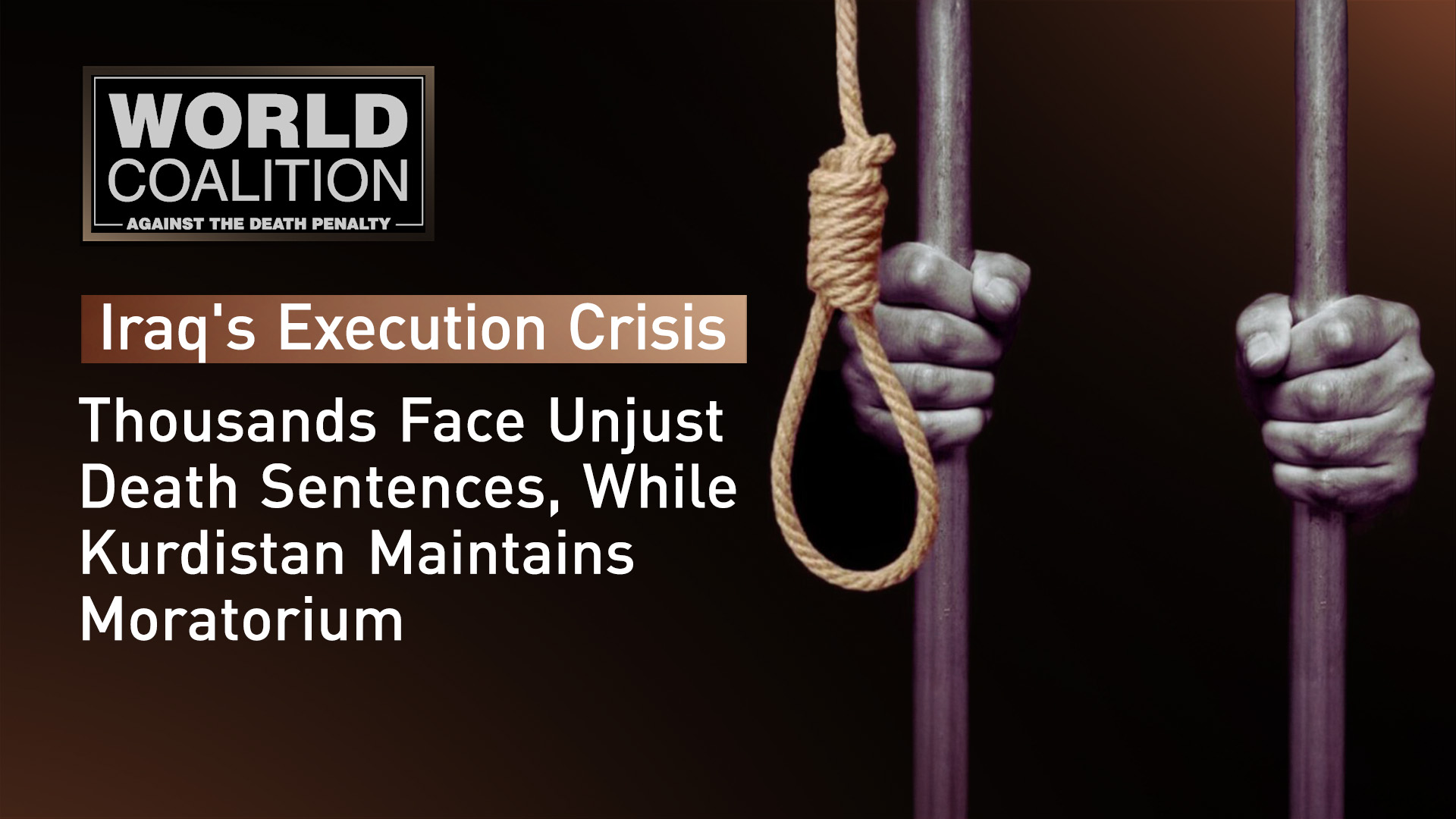Iraq's Execution Crisis: Thousands Face Unjust Death Sentences, While Kurdistan Maintains Moratorium
The report details the horrific conditions in which prisoners are denied access to fair trials, subjected to coerced confessions under torture, and executed without prior notification to their families or legal representatives.

ERBIL (Kurdistan24) - Iraq continues to rank among the world’s leading executioners, with its deeply flawed judicial system sentencing thousands to death despite widespread allegations of unfair trials and torture-induced confessions, World Coalition Against the Death Penalty report published on Monday.
According to the World Coalition Against the Death Penalty’s report, nearly 8,000 prisoners—primarily charged with terrorism offenses—remain on death row in Iraq, as authorities persist in carrying out mass executions without transparency or regard for due process.
In contrast, the Kurdistan Regional Government (KRG) has upheld a de facto moratorium on the death penalty since 2008, demonstrating a commitment to human rights and justice reform. Unlike federal Iraq, where executions are conducted arbitrarily and in secrecy, the KRG has only enforced the death penalty in extremely rare and essential cases, according to government officials.
Mass Executions and Judicial Abuses in Iraq
The 2025 World Report by Human Rights Watch underscores how the Iraqi government continues to execute prisoners despite glaring legal deficiencies. The report details the horrific conditions in which prisoners are denied access to fair trials, subjected to coerced confessions under torture, and executed without prior notification to their families or legal representatives.
On Dec. 25, 2023, Iraqi authorities executed 13 men in Nasiriyah Prison—the largest mass execution since 2020. The trend continued throughout 2024, with multiple mass executions, including the killing of 13 prisoners on April 22. Notably, Iraq refuses to publish official statistics on executions, further highlighting the opacity of its justice system.
Human rights organizations have long condemned Iraq’s approach to capital punishment, calling for immediate reforms to prevent further miscarriages of justice. Yet, Iraqi authorities continue to defy international human rights standards, making it one of the most repressive death penalty states in the world.
Kurdistan Region: A Model of Judicial Restraint
While Iraq’s execution chambers remain active, the Kurdistan Region has taken a markedly different approach. Since implementing a de facto moratorium in 2008, the KRG has refrained from mass executions and limited capital punishment to cases deemed absolutely necessary.
According to the KRG Directorate of Corrections, 466 individuals currently face death sentences in Kurdistan prisons, but unlike in federal Iraq, executions are virtually nonexistent. A KRG spokesperson reaffirmed the government’s position, stating that the region prioritizes legal fairness, due process, and human rights over arbitrary executions.
Global Implications
Iraq’s reliance on capital punishment places it among the most notorious executioners globally, drawing sharp criticism from human rights organizations. The country’s legal system, marred by forced confessions and systematic torture, has turned death row into a symbol of injustice rather than accountability.
Conversely, the Kurdistan Region’s restrained approach aligns with international efforts to abolish the death penalty, setting an example for judicial reform in Iraq and beyond. As the international community continues to pressure Baghdad to halt its execution spree, the KRG’s policy stands as a stark contrast—one that highlights the widening gap in governance, justice, and human rights between Kurdistan and federal Iraq.
As Iraq’s execution crisis worsens, calls for reform grow louder. But with a government that refuses to acknowledge its judicial failings, the future remains bleak for thousands on death row.